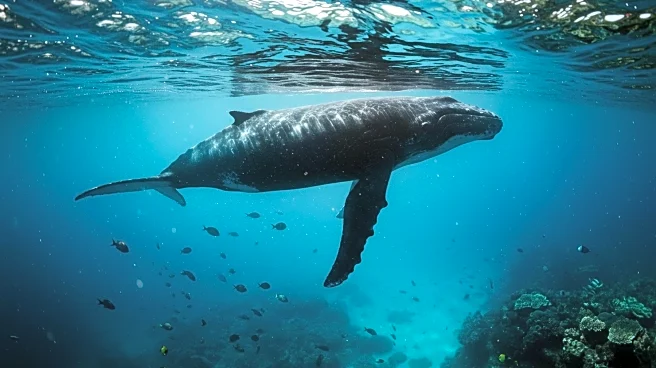What is the story about?
What's Happening?
The Trump administration is facing criticism for its efforts to weaken environmental protections, particularly those affecting marine mammals. The administration, along with congressional allies and corporate interests, is pushing to scale back the Marine Mammal Protection Act and the Endangered Species Act. This move is justified by the argument that these laws have been successful in rebuilding wildlife populations, suggesting a need to balance nature with human enterprise. However, critics argue that this premise is flawed, as many marine species still face significant threats. Republican Rep. Nick Begich of Alaska has introduced draft legislation that would limit federal actions against 'incidental take' of marine mammals, which includes harm from oil exploration and fishing gear. This proposal has been met with opposition from environmental advocates, including Rep. Jared Huffman, who warns of dire consequences for marine life.
Why It's Important?
The proposed changes to marine mammal protections could have significant implications for environmental conservation efforts in the U.S. The Marine Mammal Protection Act has been instrumental in preventing the extinction of marine species and aiding their recovery. Weakening these protections could lead to increased mortality rates among vulnerable species, such as the North Atlantic right whale and manatees, which are already facing threats from human activities. The broader impact includes potential harm to ocean ecosystems, which are vital for biodiversity and climate regulation. The rollback of these protections may benefit industries like oil and gas, but it poses risks to marine life and the health of ocean environments, which are crucial for sustainable development.
What's Next?
The legislative proposal to amend the Marine Mammal Protection Act is likely to face further debate in Congress. Environmental groups and some lawmakers are expected to continue opposing the changes, advocating for the preservation of existing protections. The outcome of this legislative effort will depend on political negotiations and public pressure. If the amendments are passed, there could be increased legal challenges and advocacy efforts aimed at restoring protections. The ongoing discussion highlights the tension between economic interests and environmental conservation, with potential implications for future policy directions.
Beyond the Headlines
The debate over marine mammal protections underscores broader ethical and cultural considerations regarding human responsibility towards nature. The historical success of environmental laws reflects a societal shift towards valuing conservation and sustainability. The current push to weaken these laws raises questions about the balance between economic growth and environmental stewardship. Long-term consequences could include shifts in public attitudes towards environmental policy and increased activism to safeguard natural resources.















